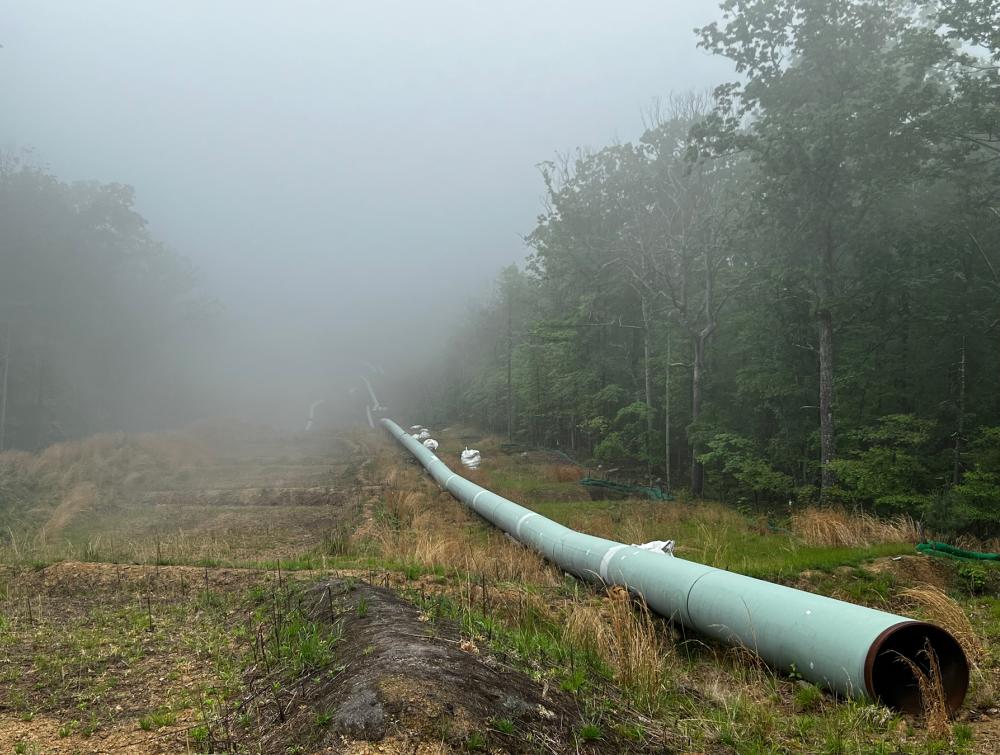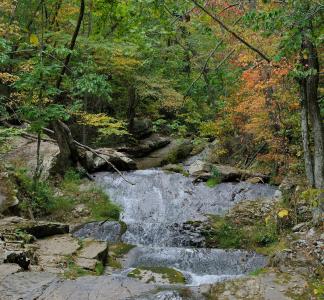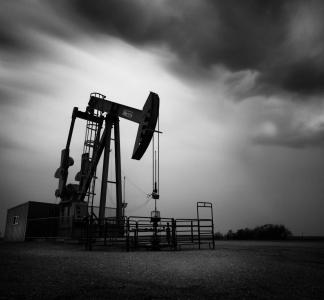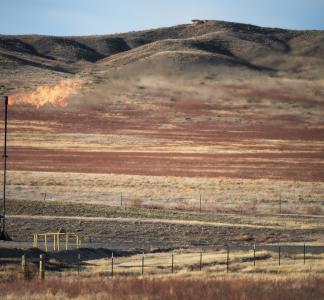Dangerous Mountain Valley Pipeline gets OK to cross forest. What’s next?

Mountain Valley Pipeline in Jefferson National Forest, Virginia
Sabrina Laratta, TWS
Update: The Wilderness Society is challenging the Mountain Valley Pipeline in court and arguing that attempts to dismiss our lawsuit are unconstitutional.
The Mountain Valley Pipeline has been called “uniquely risky” by a water scientist. A state lawmaker representing part of the Virginia region it would affect has called it “a horrible idea.” The project is dreaded by landowners and many industry safety experts alike. Tens of thousands of comments were submitted to the federal government—including more than 11,000 solicited by The Wilderness Society—opposing its approval.
But the U.S. Forest Service is willing to overlook all that.
That’s a logical conclusion to draw from the new record of decision that allows the pipeline to proceed through Jefferson National Forest, despite the process twice being deemed unlawful by a U.S. court of appeals (The Bureau of Land Management’s grant of the right-of-way and temporary use permit, another key step, was released a few days later). Bottom line: The administration has just greenlighted the Mountain Valley Pipeline to run roughshod over a national forest and local communities, and that's awful news.
We will keep fighting the Mountain Valley Pipeline with everything we’ve got—including in the courtroom
The pipeline is incompatible with the health of communities and wildlands in Appalachia, and we will keep fighting it with everything we’ve got—including in the courtroom.
Recently, the director of our Southern Appalachian landscape program, Jill Gottesman, was in Jefferson National Forest seeing what’s at stake. Hear what she had to say:
The project has and will continue to disrupt communities and wildlife in the region. Already, more than 1,100 "pollution incidents" caused by pipeline construction have impacted waterways in the upper Roanoke River watershed in Virginia, per one report. There have been hundreds of cases of harmful sediment from construction breaking containment and bypassing pollution-control measures.
And once developers finish up, it’s slated to carry fracked gas with the combined greenhouse-gas impact of 19 million passenger vehicles. The last thing we need right now is to further build up the machinery that enables our national and global fossil fuel addiction.
MVP doesn’t fit with big climate goals or environmental justice focus
The Biden administration has reiterated they’re okay with the pipeline, which originates in West Virginia and would run south across the Appalachians to Virginia. But if completed, it would disproportionately subject low-income and rural communities to the threat of toxic pollution, running counter to the president’s recent executive order on environmental justice.
And as we’ve mentioned quite a few times, support for projects like this (not to mention the infamous Willow project) totally undermines their big climate goals.
Stay tuned for the next steps as we continue our work to STOP the Mountain Valley Pipeline, including taking the battle back to the courts.



